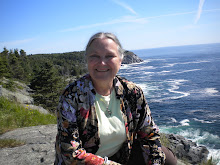This is testimony prepared for delivery to the New Hampshire Senate on April 15, 2009.
Honored Senators, Fellow Citizens
I am Rev. Mary Wellemeyer, Parish Minister of the Unitarian Universalist Church of Manchester. Unitarians and Universalists have had congregations in New Hampshire since the early nineteenth century. We are not large, but we have deep roots. Among our nation's founding fathers, John Adams and Thomas Jefferson were Unitarians; Benjamin Rush, another signer of the Declaration of Independence, was a Universalist. There are twenty-two congregations representing today's unified movement of Unitarian Universalism in New Hampshire today. Several members of the legislature are members of Unitarian Universalist congregations.
Our religious tradition has long recognized that some among us by nature turn toward romantic love and partnership with others of the same gender. Because we affirm the value of settled, long-term, relationships in our communities, and because we value the people who choose settled, long-term relationships with partners of the same gender, Unitarian Universalist ministers have been performing ceremonies of union for same-gender couples since the 1970's.
The present legal climate where states distinguish between civil unions and marriages is no less confusing to me as a religious professional than the previous arrangement where same-gender couples had no legal status. What we have now is better for the couples, but still difficult for me as clergy. For years, we Unitarian Universalist ministers understood that the ceremonies of holy union we performed were religious only, not backed by the force of law. And yet, we were inclined to call them “weddings,” with the resulting status of the couple a “religious marriage.” I still perform religious weddings for same-gender couples and say of the couples who are so joined that they are “religiously married”, although in terms of the law they are joined in this odd category called civil union.
I find myself thinking, “why can't they just be married?” There's a gap between those who are qualified for a religious marriage in our tradition and those who are qualified for a civil marriage in the state of New Hampshire. I declare this morning that my confusion and frustration stems from an abridgement of free exercise of religion for the well-established, mainstream religious community I serve. There may be other ways to solve this problem legally, but one of the most straightforward is the one before you today: make marriage legal for committed couples of the same gender.
Please: I ask you to take action to align the religious practice of those traditions that accept same-gender couples as qualified for marriage with the civil practice of marriage. Let those whom God has joined together not be relegated to a kind of not-quite marriage by the State of New Hampshire.
Wednesday, April 15, 2009
Subscribe to:
Post Comments (Atom)

3 comments:
This is a rather important request,
Please: I ask you to take action to align the religious practice of those traditions that accept same-gender couples as qualified for marriage with the civil practice of marriage. Let those whom God has joined together not be relegated to a kind of not-quite marriage by the State of New Hampshire.To my understanding, a UU marriage is a public commitment between two people. There may be some UU's willing to have a public commitment by more than two people e.g the UU polyamorists.
But it's not a sacrament. It's not an act where we believe God is uniquely active.
In effect, a UU marriage is a Civil Union done in a Church before a Religious Community; not a marriage in a sacramental sense.
It is the form of a marriage but we've stripped God out of it save what's in the participants hearts.
I think we are a religious tradition quite alone in treating marriage this way save maybe our Ethical Humanist cousins; but they're not a religion.
Am I wrong?
You ask the State of NH to align religoius practice with civil law.
Do you really mean that?
I'm not going to get into what is and what is not a sacrament. UU practices vary. Among theistic Unitarian Universalists, God is invoked and can be said to have joined the couple. Among humanist UU's the presence of the gathered community blesses the commitment.
I would like the State of New Hampshire to align their definition of marriage with our religious practice so that we can stop this dance about religious marriages that are or are not also civil marriages. I was not clear: we have control of the religious practice, while they have control of the civil practice.
The real right answer is to get the state out of the marriage business: civil unions for everyone performed by the state, then religious unions performed by the faith community of your choice.
The real right answer is to get the state out of the marriage business: civil unions for everyone performed by the state, then religious unions performed by the faith community of your choice.I agree and wish you had been that upfront from the getgo.
I've never seen an issue where two sides talk past each other as with ssm. Saying exactly what we mean is crucial.
What UU's call marriage is quite unlike anything performed by a Church or a State.
Rather than proclaim Marriage Equality for something we only offer, I think it's just best to suggest the State's refrain from licensing marriage, and those institutions who allocate benefits on the basis of "marriage" best find a different way to sort that out.
Clarity is critical here....
Post a Comment